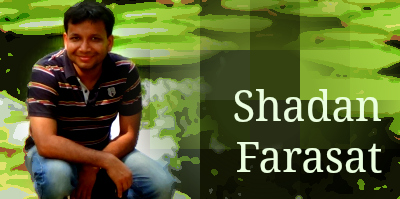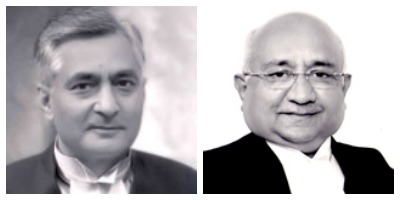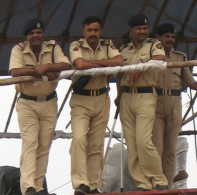 On July 18, the Supreme Court delivered a judgment releasing from custody, twelve men who had been accused of orchestrating the blasts in Surat in 1993. Justices T.S. Thakur and C. Nagappan delivered the decision titled Hussain Ghadialy and Others v. State of Gujarat in Criminal Appeal No. 92 of 2009. The judgment itself does not point out the period for which the accused had been incarcerated. Given that the blasts happened over twenty-one years ago, it would be reasonable to presume that the accused had spent over fifteen years in custody for an offence that the Supreme Court has now determined they did not commit.
On July 18, the Supreme Court delivered a judgment releasing from custody, twelve men who had been accused of orchestrating the blasts in Surat in 1993. Justices T.S. Thakur and C. Nagappan delivered the decision titled Hussain Ghadialy and Others v. State of Gujarat in Criminal Appeal No. 92 of 2009. The judgment itself does not point out the period for which the accused had been incarcerated. Given that the blasts happened over twenty-one years ago, it would be reasonable to presume that the accused had spent over fifteen years in custody for an offence that the Supreme Court has now determined they did not commit.

Speaking for the Court, Justice T.S. Thakur held that the under Section 20A of the now-lapsed Terrorist and Disruptive Activities Act, 1987 (“TADA”), the approval of the District Superintendent of Police was necessary before any information about the commission of an offence under the provisions of TADA can be recorded. In this case, no such permission was obtained. All proceedings under TADA therefore, stood vitiated. The only evidence against the accused was their confessions before the police, which could be admitted as evidence under Section 15 of TADA. Since the provisions of TADA were not applicable however, the convictions could not be sustained without independent evidence.
In another recent judgment, that of A.S. Ajmeri v. State of Gujarat, Criminal Appeal No. 2295-96 of 2010, delivered on May 16, another bench of the Supreme Court released on very similar grounds, the accused under the Prevention of Terrorism Act, 2002 (“POTA”). In this case too, the police force involved was the Gujarat Police and the Court passed severe strictures against them.
 These two cases really highlight the severe damage caused by the provisions of these draconian laws. Far from making the apprehension and conviction of actual terrorists more credible, these provisions gave the police another tool to frame innocent individuals only to show that the case has been solved, even as the actual perpetrators of such violence remain un-apprehended.
These two cases really highlight the severe damage caused by the provisions of these draconian laws. Far from making the apprehension and conviction of actual terrorists more credible, these provisions gave the police another tool to frame innocent individuals only to show that the case has been solved, even as the actual perpetrators of such violence remain un-apprehended.
The more recent case before the Supreme Court was one of the many where the sole basis for conviction in a TADA case was the confession before the police. Under the normal criminal law, such confessions are inadmissible as evidence. In most of these cases, the designated TADA courts have given too much leeway to the prosecution and convicted the accused only on the basis of a confession before the police, even though there were serious irregularities in the initiation of proceedings under TADA or in the recording of the confessions, which are very often fabricated. Under TADA, the first and only appeal lies to the Supreme Court. By the time the Supreme Court finally corrects these errors and acquits the accused, more than a decade has passed. The process itself becomes the punishment.
While TADA itself has been repealed, many of the questionable convictions made under this law are still pending appeal before the Supreme Court. Even if the accused are released in these appeals, given the absence of jurisprudence in India over compensation for wrongful or malicious prosecution, they are usually not granted any compensation for the crucial years of their life that they spent in custody. After the years of incarceration, most of the accused are just happy to be out of jail and reunite with their families.
 This experience with TADA and POTA shows that draconian provisions giving additional powers to the police, especially in relation to the admissibility of evidence is, in the absence of genuine police reform, likely to encourage an already compromised police force to misuse them to frame innocent civilians while the real perpetrators roam free. The solution lies in having a more professional and uncompromised police force that is able to honestly investigate and solve both regular crimes and terrorism cases alike.
This experience with TADA and POTA shows that draconian provisions giving additional powers to the police, especially in relation to the admissibility of evidence is, in the absence of genuine police reform, likely to encourage an already compromised police force to misuse them to frame innocent civilians while the real perpetrators roam free. The solution lies in having a more professional and uncompromised police force that is able to honestly investigate and solve both regular crimes and terrorism cases alike.
Shadan Farasat is an Advocate-on-Record at the Supreme Court of India.
